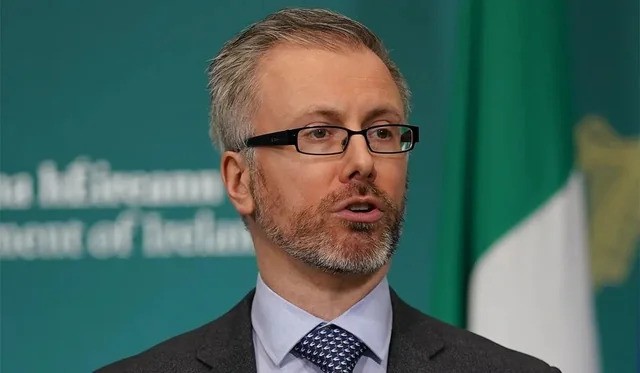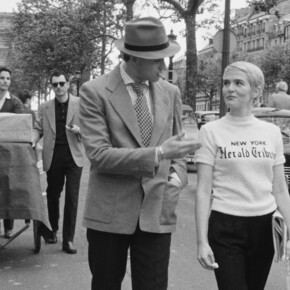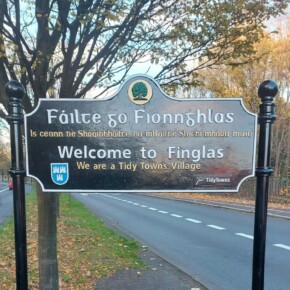Violence against politicians “reaching a tipping point” says O’Gorman
Mike Finnerty 17 Sep 2025
Green leader Roderic O’Gorman has expressed concerns that violence against elected representatives is “reaching a tipping point.”
The Dublin West TD was speaking on RTÉ’s Morning Ireland the morning after right-wing political commentator Charlie Kirk was assassinated in the United States, and in the same week, Tánaiste Simon Harris received a bomb threat against his home.
A number of violent threats have been made against the Tánaiste and his family in recent weeks.
Discussing the current political climate, O’Gorman said, “I am worried that some morning we’re going to turn on Morning Ireland and hear – not a report from happening in the States or the UK, but something happening here.”
O’Gorman noted the murders of two MPs in the United Kingdom over the last 10 years – Labour MP Jo Cox and Conservative MP David Amess – as well as the escalating political violence in the United States, as examples of political violence that don’t typically happen in Ireland, but may well happen if action is not taken against social media platforms.
“There is just so much material out there in the political space; I try to ignore it as much as possible, but I know from speaking to experts who work in this area and people who do content moderation that there is a large amount of violent and radical material that is being shown to young people and vulnerable people. Steps need to be taken not just in Ireland, but across Europe as well.”
He said that the internet’s role in hardening political discourse needs to be analysed and that steps should be taken to prevent online abuse of politicians and voters alike.
The Green leader said that algorithms, which feed recommended content to users, are playing a part in enabling political extremism and said that social media platforms should own their culpability.
He noted, “we know those systems are there, and we believe they should be turned off. We think that is an important step that could be taken.”
“We all know there’s no one easy solution,” he acknowledged, but said that the amount of violent and extremist content being shown to young people, specifically, needs to be tackled.
“We need to change the way social media works if we’re to preserve democracy – secretive algorithms are placing misinformation and provocative material in front of us all, and society is the loser,” he said.
The Online Safety Code, which was published in May 2024, was regarded as lacking in some circles, and O’Gorman noted that in the draft code of conduct, there was a proposal which would have compelled social media platforms to turn off their algorithms; it did not make it into the final document.
He said limiting algorithms are “not the absolute solution here, but it will stem the flow of a very significant amount of violence, of radicalising imagery to young people, and particularly to people who are vulnerable to the impact of this.
“This is a non-partisan thing. This is about making politics safer, making public life safer for absolutely everybody.”
In the run-up to last year’s general election, a man assaulted O’Gorman and shouted homophobic slurs at him; the man, Karl Ronan of Blanchardstown, avoided jail time for the incident and was sentenced to 200 hours of community service.
In the aftermath of the assault, as well as general threats from the far-right levelled against O’Gorman in his time as a government minister, O’Gorman told RTÉ that his Dublin 15 home is “like a fortress.”
He was adamant that he wouldn’t leave politics after the assault and the abuse he suffered, but O’Gorman said his house is now “like a fortress” in terms of electric gates, multiple cameras, and alarms.
He said that during his time as Minister, there was a sense of living in a bubble in terms of security, and said after the assault, “I had to dramatically change my life.”
“I’ve always made the point that in Ireland, politicians are accessible; we’re different to politicians on the continent where there’s a huge gap.”
O’Gorman’s home was targeted by masked anti-immigrant protesters in 2024, with banners reading “Minister O’Gorman Hates Children” and “South Dublin Says No, Close The Borders” attached to the front railings of his house.
He said that now that he is no longer a government minister, he was able to engage more freely with his constituents in Dublin West as he is now an opposition TD without the pressure of government.
Since leaving government, O’Gorman said that it’s easier to engage with his constituents without the constant garda presence surrounding him, noting, “I pick up a few constituent requests when I’m out shopping on a Sunday evening.”
In late 2023, Labour leader Ivana Bacik proposed legislation which would stop the home addresses of election candidates from being published; the legislation was rejected by the Fianna Fáil/Fine Gael/Green government of the day.
Labour made the amendment to the Electoral Act of 2023, which included Dáil constituency redraws; Labour argued that election candidates being forced to publish their home address was a “retrograde” move which discouraged people from running for office.
Speaking at the time, Bacik said, “the Electoral Commission should have the power to change rules around the need for candidates to disclose a specific home or postal address on ballot papers. We are disappointed that the government decided to vote against this much-needed measure.”
“We need to encourage more people into politics and to address the barriers that prevent people from entering electoral politics.”
“Unfortunately, due to the failure of this government to tackle the far-right and to ensure sufficient safeguards to protect the safety of those who wish to put themselves forward for public office, we know that potential candidates for all parties are fearful of putting their home addresses into the public record. Who could blame them?” she said at the time.
Prior to leaving office as Taoiseach, Leo Varadkar admitted that online abuse was proving to be a major deterrent for people running for election.











